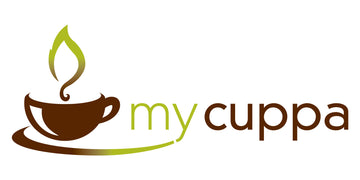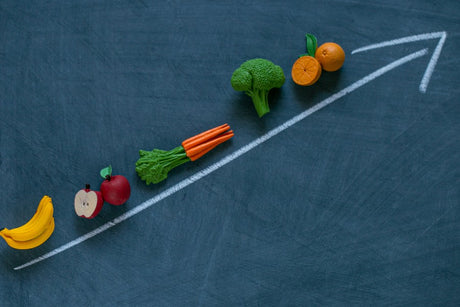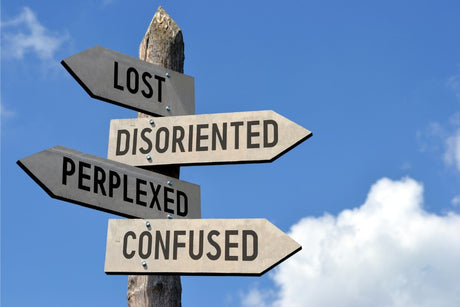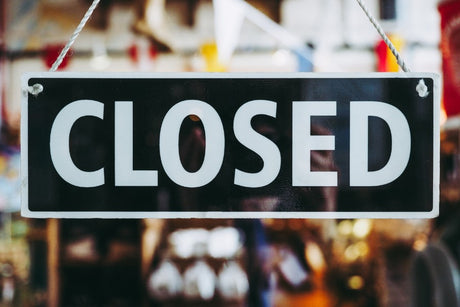Why coffees disappear from the store?
Eagle eyes will have noticed a few coffees recently disappearing from our extensive range, and there are a few reasons why we are rationalizing our line-up.
Since 2007 we have been selling a lot more different types of coffees than any other brand in Australia.
In early 2020, it's become really difficult to keep up the daily rituals of sourcing, evaluating, storage, roasting, quality control, packing, selling, labelling and shipping.
All this needs to happen within what seems like a few short hours every day.
Our fresh roasted coffees sell too fast during the day. Having close to 50 different types of coffee means we end up with over 900 different coffee SKU's when the different pack sizes and grind options are taken into account.
So often, we resort to a mad scramble in production to quickly cover the shortfalls - our roasting sessions are running for too long every day.
The more we have to roast, the more coffee needs to be packed and with hundreds of parcels to prepare each day, many of them containing ground packs, the freight companies are collecting earlier.
It's all become a factor of extreme time pressures.
Despite our impressive roasting and packing capacity - 3x roasters, 3x packaging systems, and skilled staff having many options and variations in coffees, it has become too difficult keeping everything super accurate and precise whilst processing at super-fast speeds.
The reality is no other coffee company in Australia or the world does what we do every day. It's not about bragging right.
There is an obvious tension between running controlled manufacturing versus pivoting rapidly to run another batch of coffee - speed is everything regarding freshness and online businesses.
So we are doing some pruning to our lineup.
Coffees will always disappear as the lots we hold are never guaranteed to be available from crop to crop or year to year. In most cases, we are at the mercy of importer's preferences.
Consistent lots remain one of the biggest challenges with sourcing coffees, particularly the specialty quality grades we offer.
Due to the changes in consumer purchasing habits from coronavirus, we ran through much higher volumes of coffees over the last couple of months as online shifted into a higher gear, so that's had a major hit on our contracted lots - we went through many of our holdings a whole lot faster than planned.
We had to organize our sourcing many months ahead, and nobody saw the coronavirus coming or understood its brutal impact.
Sourcing raw coffee is more complex than getting on the phone to ask for more to be delivered next week - mostly, the lots you want are unavailable for a large portion of the year, and hence, reservations are made way ahead.
There are some lots we source 7 to 9 months ahead when crops are still blooming in farms and yet to be harvested so that we can get into the forward pipeline to avoid missing out.
The higher volumes we roasted over the March and April 2020 periods tended to be our more exotic lots.
These holdings are always a "tight" proposition versus blends where we have more flexibility to ramp up volumes rapidly.
Ironically, it's also this time of year when it's a critically tight supply period - most Central American and African origins are in harvest right now, so we are at the end of the season, and inventories are low inside the Australian importer warehouses, or the lots available may not be the best in class.
New crops are due in from late May through September, so we have to limp through as best we can on our existing holdings; plus, we have been lucky enough to scoop up some coffees contracted by other companies.
The forced lockdowns from coronavirus in many countries have also slowed the normal flow of goods as shipping lines ground to a halt, borders were closed, and strict protocols were placed on handling goods with medical supplies given priority.
Container movements have been log-jammed since China closed in late January, as most containers pass via China.
Shipping lines stopped sailing or reduced their voyage schedules, and there is a chronic shortage of available containers in many countries.
The other unpublished factor affecting coffee shipments has been the impact of hospitality shutdowns around the globe.
Many big importers have frozen purchasing activities as they assess the fallout of coffee companies' inability to fund forward contracts or even pay their outstanding accounts.
Whilst the public won't stop drinking coffee, the consumption rates shift with the types of coffees drunk in the home being different - less cafe or restaurant espresso, more instant, ground and capsule/pod.
Coffee importers are taking conservative steps to survive as the cash flow crisis hits their business - along with the falling Aussie Dollar, many are left stranded with green coffee inventories they can't sell or move.
Some of their coffee company customers need help to pay their outstanding bills.
It's all heading towards some interesting supply dynamics, and nobody can predict how it will play out as the economy resumes back to normal.
We have run out of Zambia.
It has always been an origin we did not hold large quantities as it's not a common origin stocked by imported. It's possible to source more coffee, but we prefer to avoid buying at the end of the season.
Fresh is always best.
As to whether we will continue with Zambia - it is unlikely. It's not a big seller, but a nice coffee, and for the sake of efficiency, some sacrifices must be made, so it's been removed from our store.
Similarly, we have some chronic shortages of Sumatran coffees, but the good news is we have secured exceptional new season lots, but they land in mid-May.
It's hands-down the best lot of Sumatran that comes into Australia, and we can't wait to get it in the roaster!
Moving forward, we are offering less variety with Sumatrans (5x was too many) as they are also really hard to source and always carry far too many risks due to the special and unique processing methods, which can lead to a taint in the cup if the high moisture levels during the wet hulling are not handled properly.
We have stopped Sulawesi and other Sumatrans, such as Aceh Gayo.
There have been inconsistent qualities, which remains a key risk we wish to avoid carrying into the future.
Costa Rica has been a difficult proposition for the last few years, with smaller harvests and significantly higher prices.
Whilst we love Costas, we've made a difficult decision to rationalize and focus on a stunning single lot.
Costa Rica is moving in a similar direction to Panama by commanding high premiums as their economies rely less upon coffee and agricultural commodities and more on developed or advanced business services such as tourism, real estate, retirement villages, etc.
For Brazils, there will always be plenty of options available because it's the largest producer of coffee on the planet. We always hold around 4 or 5 Brazils in our warehouse.
Still, the rigours of keeping 3x freshly roasted single-origin Brazil offerings available for sale every day takes a heavy toll, so we have slimmed this down to just 2x offerings, and that may, in the future, trim down to a single lot.
Guatemala has been through a difficult 18 months as its economy struggled with unsustainable conditions from the lower C-index pricing and poor value of the local currency to the greenback.
Guatemala is often described as the perfect climate for growing coffee.
Still, the government's deterioration and loss of control, violence, corruption and poor living conditions mean it's a desperate venture for most coffee farmers.
We pray for Guatemala's survival - one of our most prized origins.
In response, we have dropped the classic Antigua and put all our focus behind ensuring our wonderful Huehuetenango continues to kick big goals.
After a long history with our beloved Ethiopia Limu (or Limou), we emotionally decided to drop it from our everyday line-up.
Whilst it's possible to keep sourcing Limu, and we may do this for blends, again, like Brazils, we end up tying ourselves in knots every day roasting, packing and shipping too many offerings.
Coffees will always come and go in our store - some will be featured for a few weeks or a month, especially when appearing in our monthly newsletter, then disappear for good.
That's indeed the true lifecycle of seasonal coffees, and we must always respect freshness in roasted coffee as much as we do in raw, unroasted coffee.
It also keeps us enjoying the variety and our eyes open to new opportunities offered by something different.
At mycuppa, it's never about price or budget, nor convenience - we live and die by the quality of our last roast, so it's critically important to offer great value to our customers - sure, there are super-expensive rock-star lots that exhibit jaw-dropping experiences.
Still, they come at hefty price premiums that may only fit within some people's budget, particularly as the economy is experiencing a series of negative shocks.
Most Australian coffee consumers want a decent coffee freshly roasted and shipped fast at a fair price - that will always be our core value proposition.









